In today's #dailysoup, I'll introduce another #Malaysian BRI project x white elephant, Forest City. It is a so-called "sustainable city project" that faced flak for environmental degradation and a lack of consultation with its stakeholders.
1/16
1/16
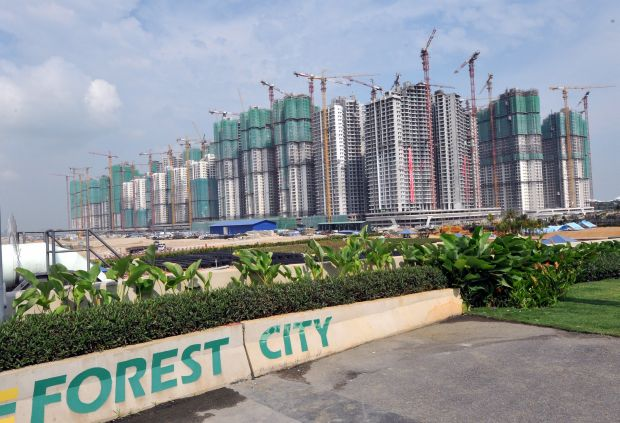
The Forest City project is supposed to be located at the shores of Tanjung Kupang at Johor, #Malaysia.
It is also located beside Malaysia's border with the western part of #Singapore.
2/16
It is also located beside Malaysia's border with the western part of #Singapore.
2/16
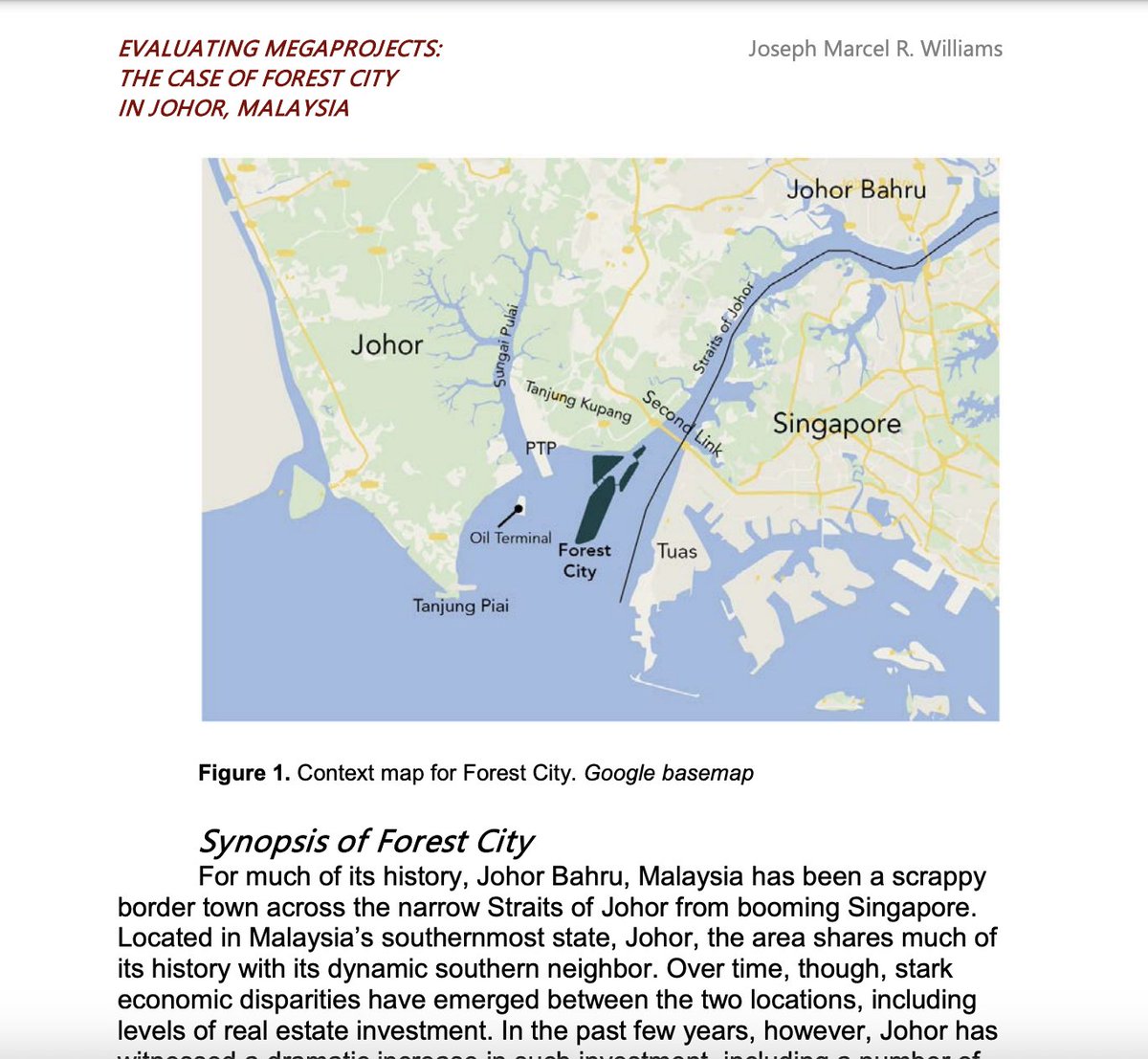
The Forest City project in Johor is also known to be "too ambitious". It aims to create at least four artificial islands containing "futuristic cities" with "lots of trees screaming sustainability" resting in the Strait of Johor, right beside western Singapore.
3/16
3/16
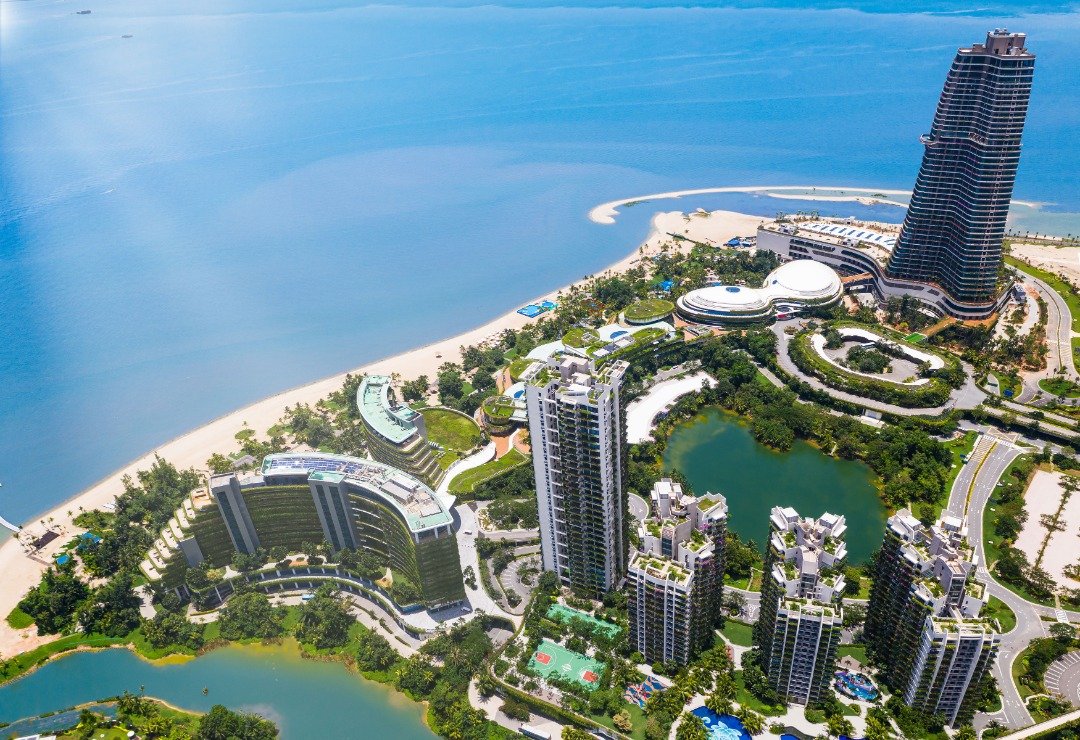
Although proposed in 2006, Forest City started development in 2014, led by a venture between Guangdong-based Country Garden Holdings, owned by two notorious Chinese billionaires, and Esplanade Danga 88, 99% owned by Sultan Ibrahim Ismail of Johor.
4/16



4/16


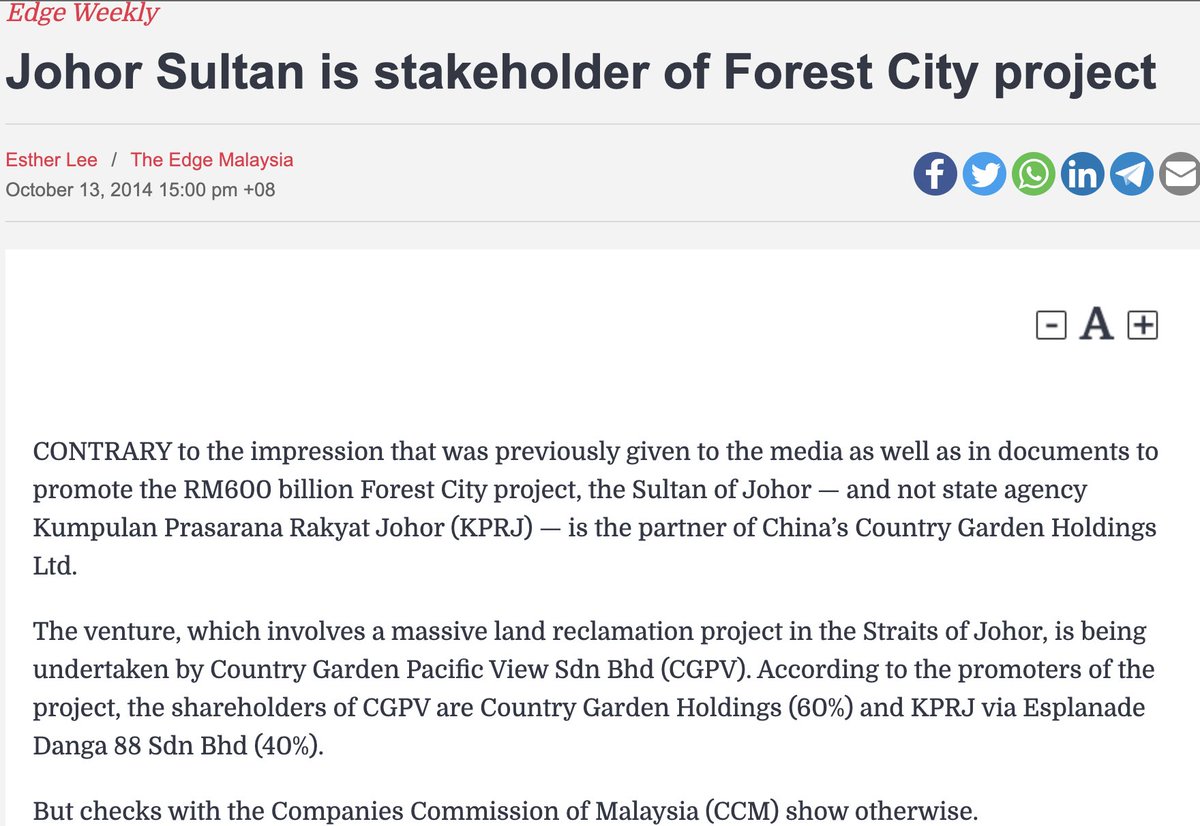
Moreover, Forest City is a part of the Belt and Road Initiative, especially when Najib brought Malaysia to the BRI to cover up 1MDB.
Forest City ended up facing issues like environmental degradation.
Sounds ironic for such an "eco-friendly city project".
5/16
Forest City ended up facing issues like environmental degradation.
Sounds ironic for such an "eco-friendly city project".
5/16

As Forest City is located at a fishing village, coastal fisherfolks were surprised when they noticed dredgers dumping sand at their fishing grounds.
They added that they were "not informed about the project", especially when it didn't appear in Malaysian dev't plans.
6/16
They added that they were "not informed about the project", especially when it didn't appear in Malaysian dev't plans.
6/16

Moreover, the fisherfolks said that they only heard that "Sultan Ibrahim Ismail of Johor owns a stake of Forest City" and that "the Johor Department of Environment allowed the project to push through without checking".
7/16
7/16

Sultan Ismail's investments towards initiating a BRI project like Forest City is a part of his plans to take advantage of Malaysian election season to perform "reclamation projects" in Johor for his own benefit.
To avoid TMI, I'll write more about him in a future entry.
8/16


To avoid TMI, I'll write more about him in a future entry.
8/16
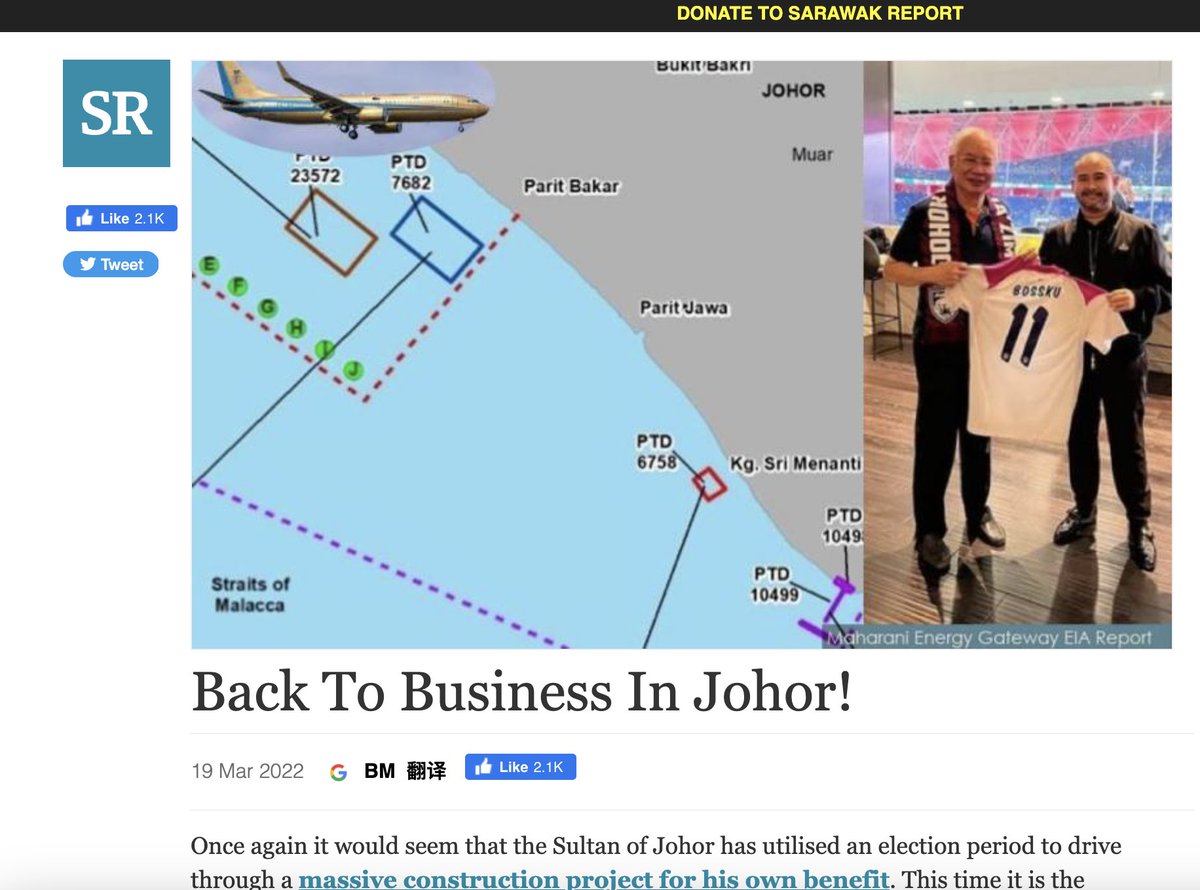
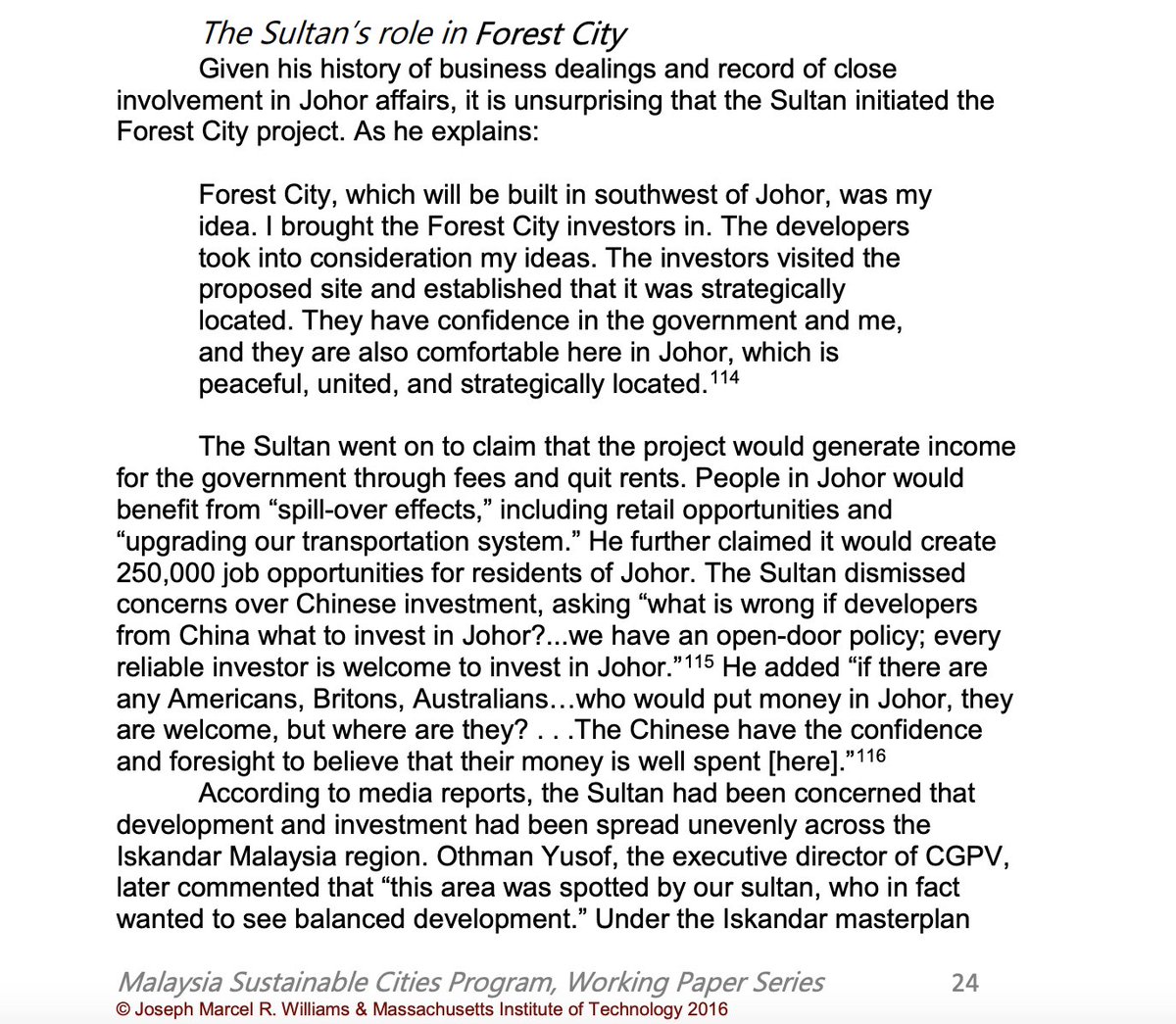
What's even more ironic is that the construction of Forest City, a "sustainable city", produced air, water, and noise pollution near the fisherfolks' houses, and 2,000 acres of mangrove, as well as fish supplies, were decimated, affecting the fisherfolks' incomes.
9/16
9/16
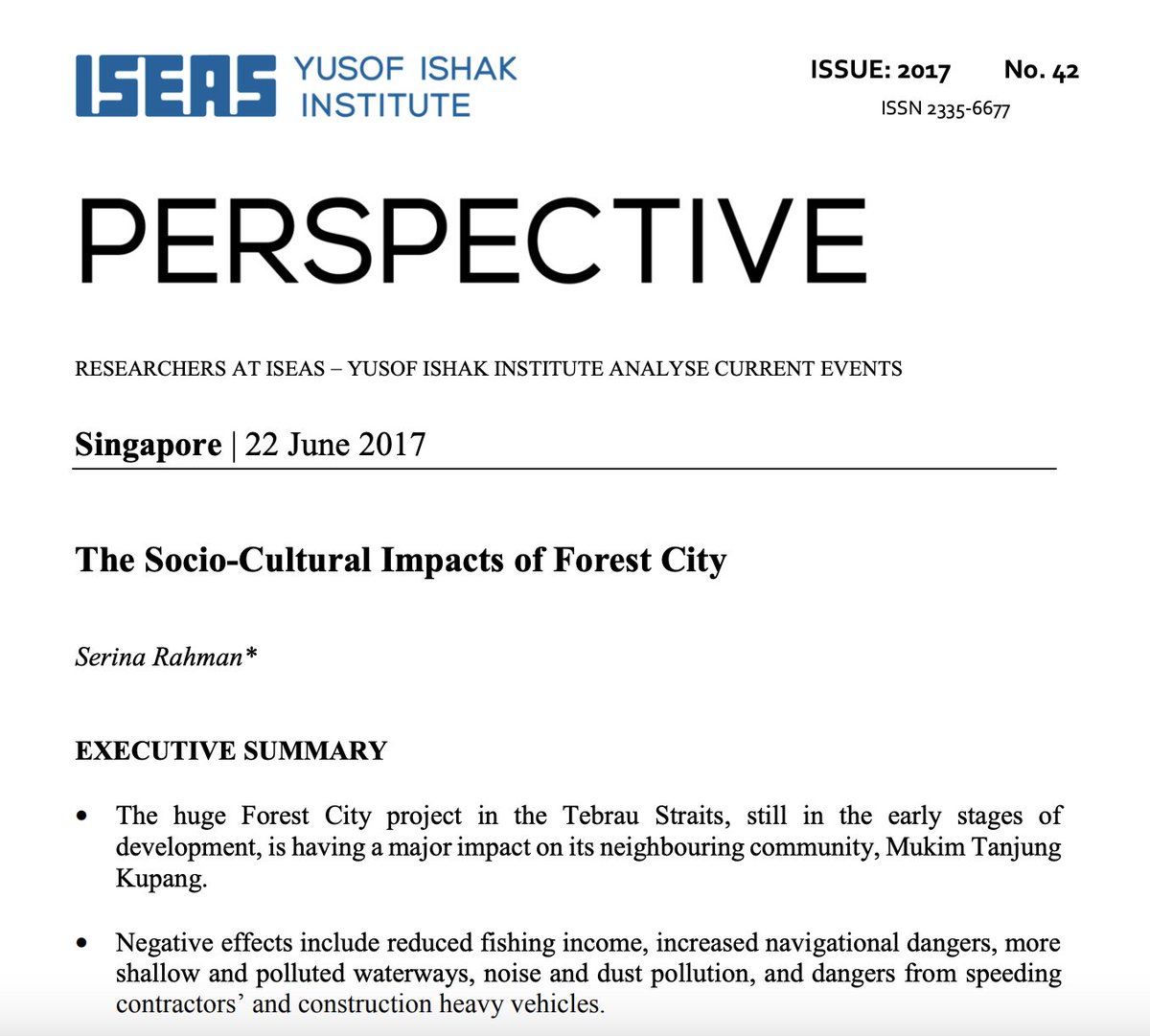
Then, in mid-2014, Singapore filed a diplomatic protest against Malaysian officials, questioning about Johor's intention of constructing a "Forest City" in the Strait of Johor, as well as the project's environmental impact, leading to the project's suspension.
10/16


10/16
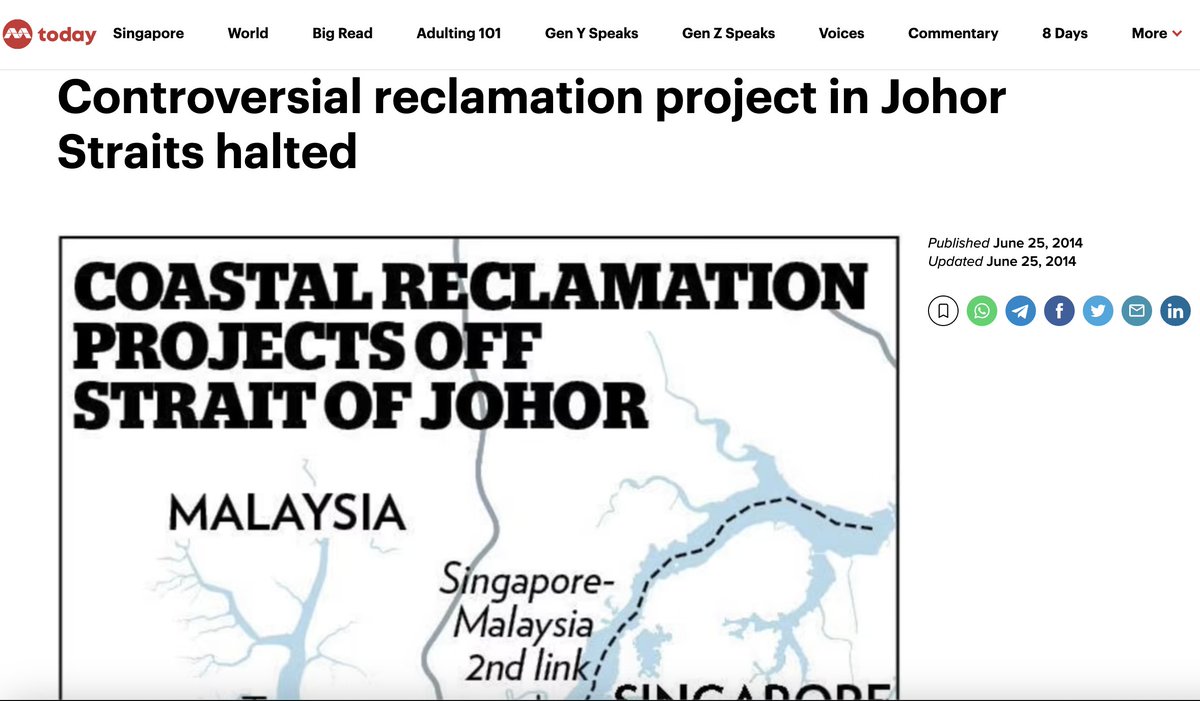
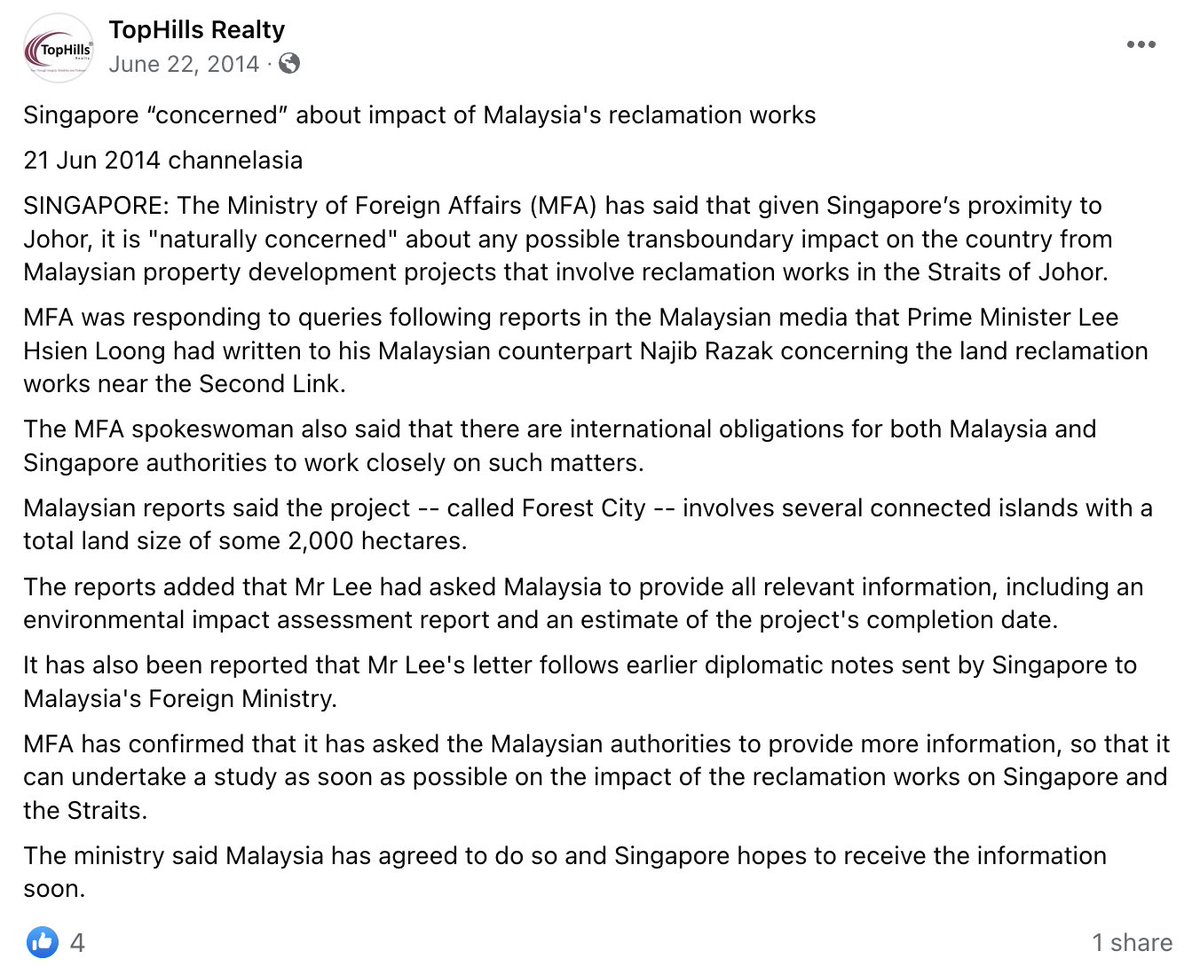
What's more ironic is that the Malaysian Department of Environment gave the developers a "go-signal" to continue the Forest City project in 2015 despite concerns about its environmental impact.
11/16
11/16
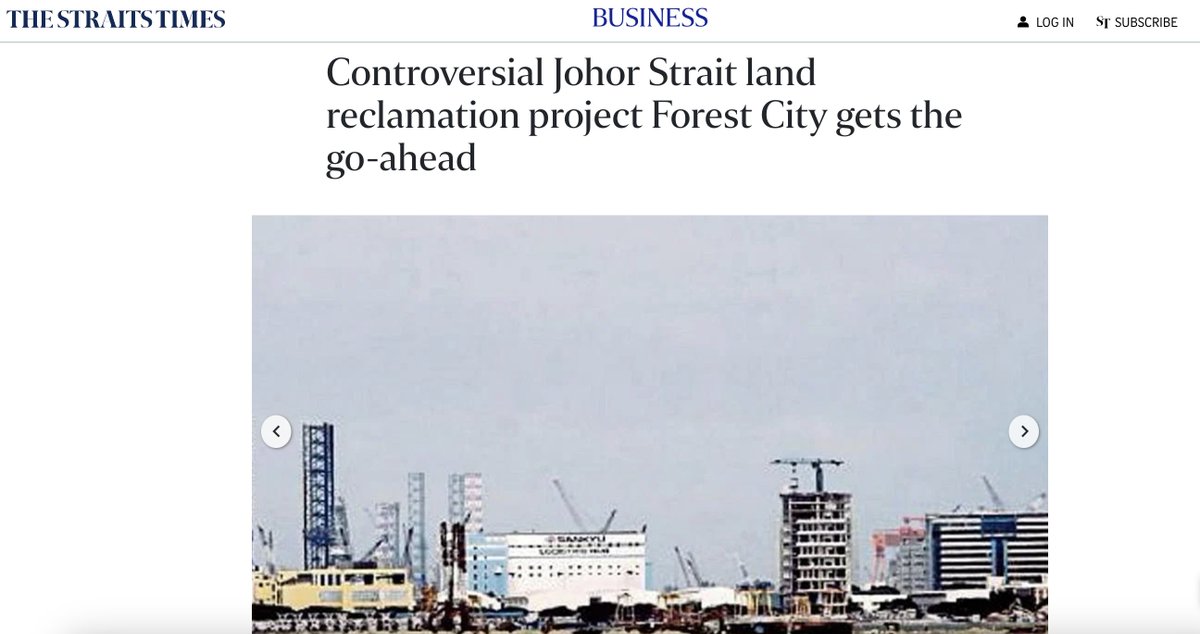
Meanwhile, reports stated that mainland Chinese buyers bought two-thirds of Forest City's units while the project was under construction, especially when it was aimed as "a more affordable alternative to Singapore for Chinese investors". However,...
12/16
12/16
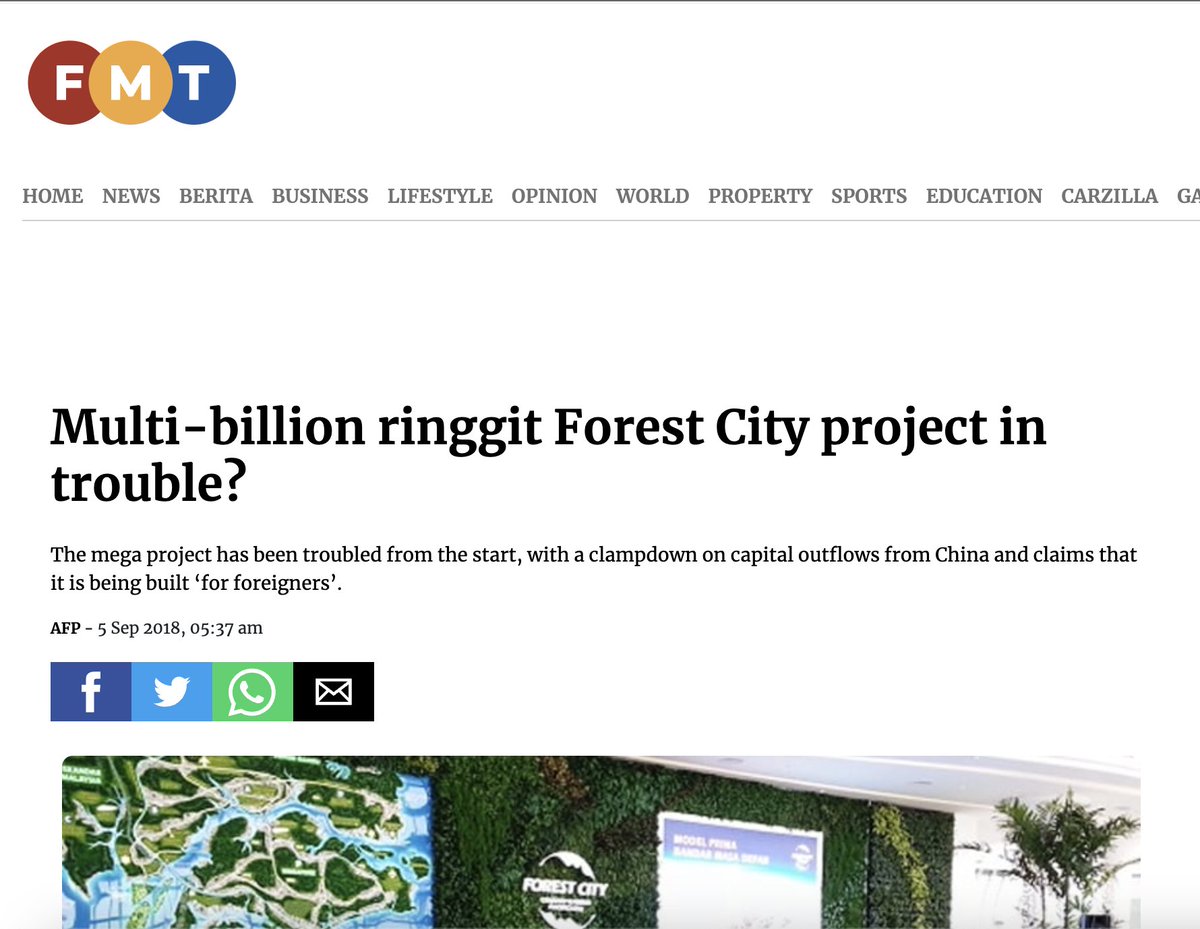
...this sparked concerns of "unwanted Chinese colonisation in Malaysian soil", especially when Forest City is also located near a crucial global trade route called the Strait of Malacca.
A few factors led to the project's conversion into a white elephant.
13/16
A few factors led to the project's conversion into a white elephant.
13/16
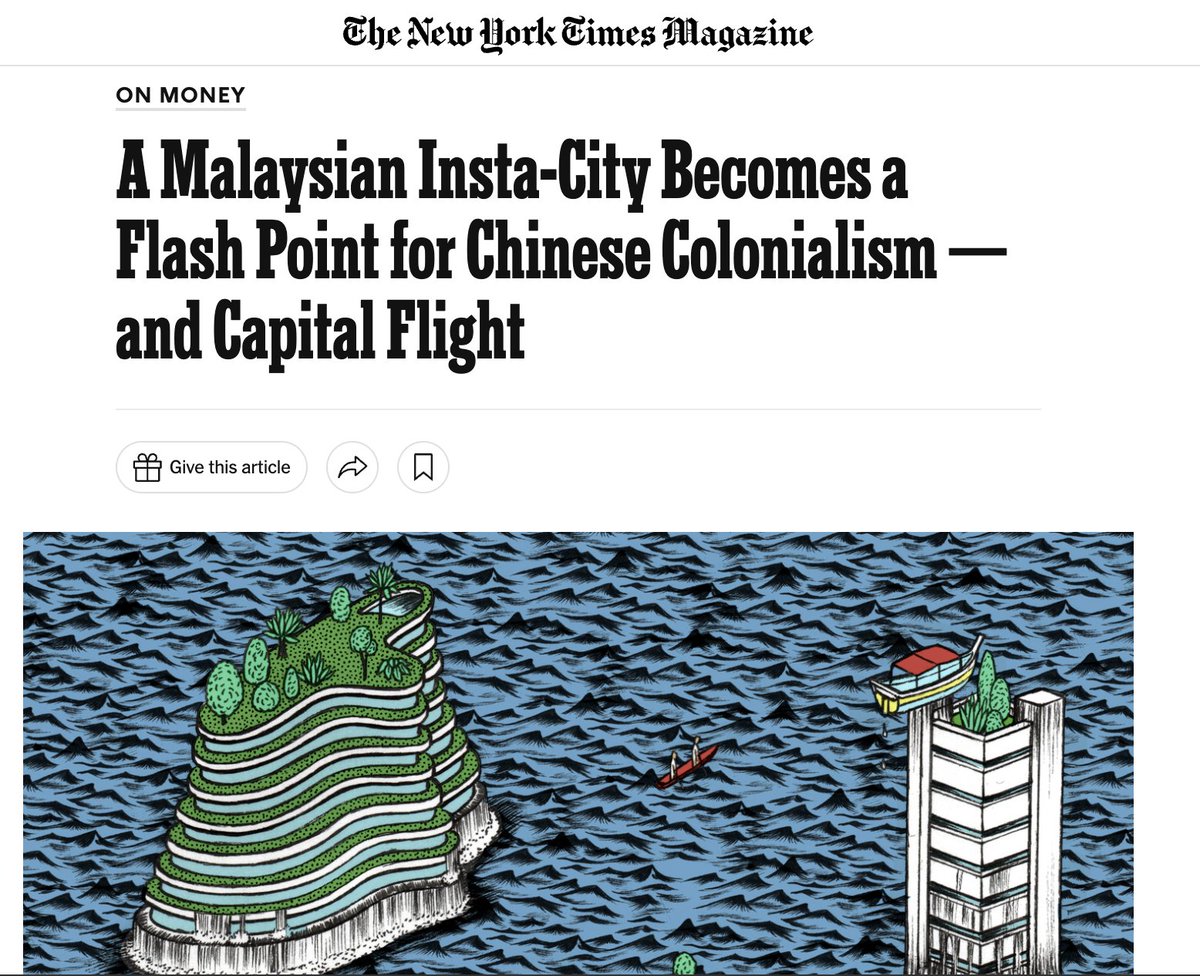
After the fall of Najib in 2018, the administration of Mahathir Mohamad, while aiming to scrap BRI projects, stated that "the city doesn't belong to foreigners", adding that "[Forest City's] flats could not be sold to Malaysians coz it was built for foreigners".
14/16
14/16
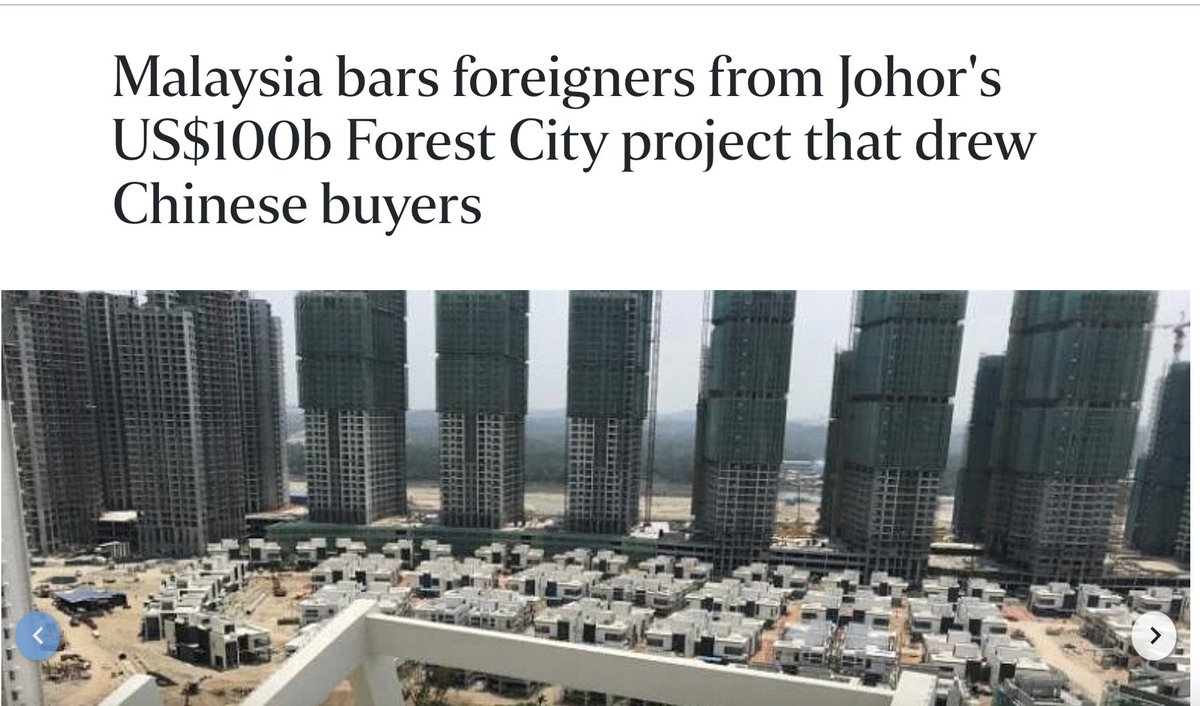
China's crackdown on capital flight or "people leaving for greener pastures", combined with the economic impacts of the COVID-19 pandemic and the early 2020s Malaysian political crisis, led to the stalling of activity in Forest City.
15/16
15/16
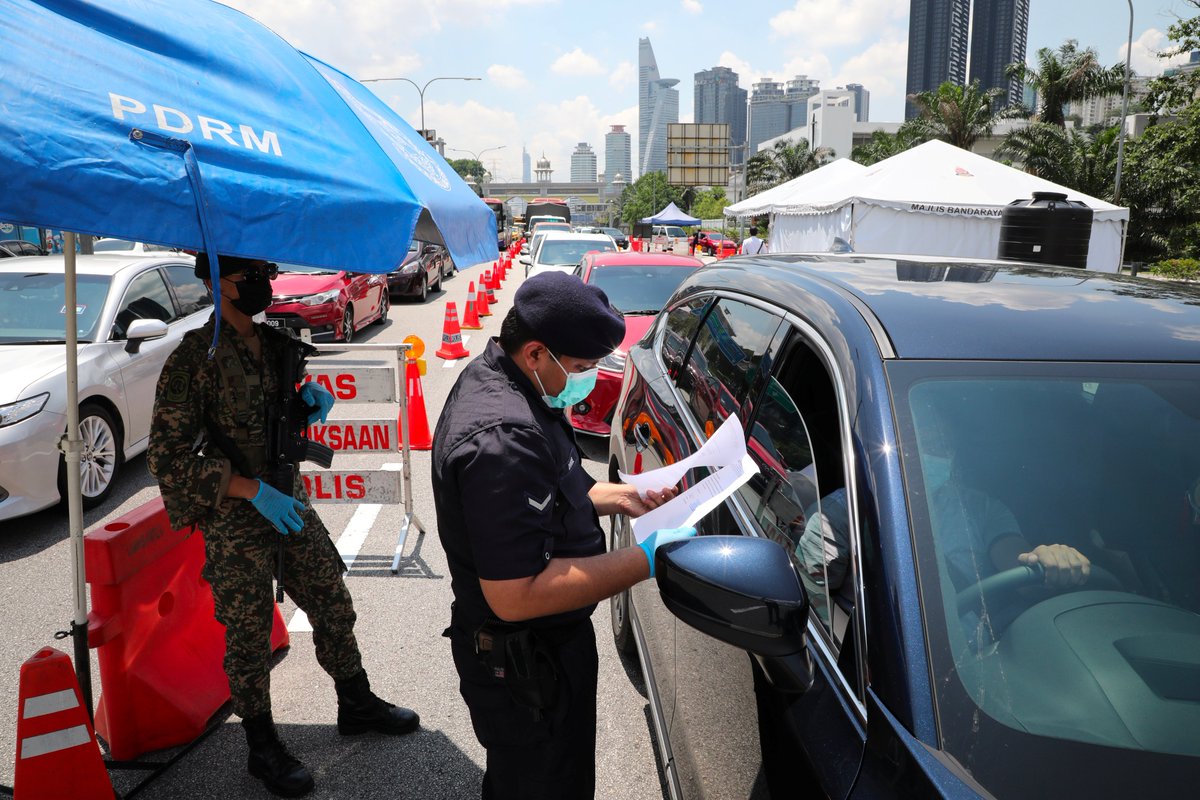
As of today, Forest City remains as a "white elephant", resembling more like a first-class post-apocalyptic wasteland than a Malaysian Shenzhen.
This is how such a BRI project like Forest City failed. Just picture Sihanoukville but minus the crime.
16/16
This is how such a BRI project like Forest City failed. Just picture Sihanoukville but minus the crime.
16/16
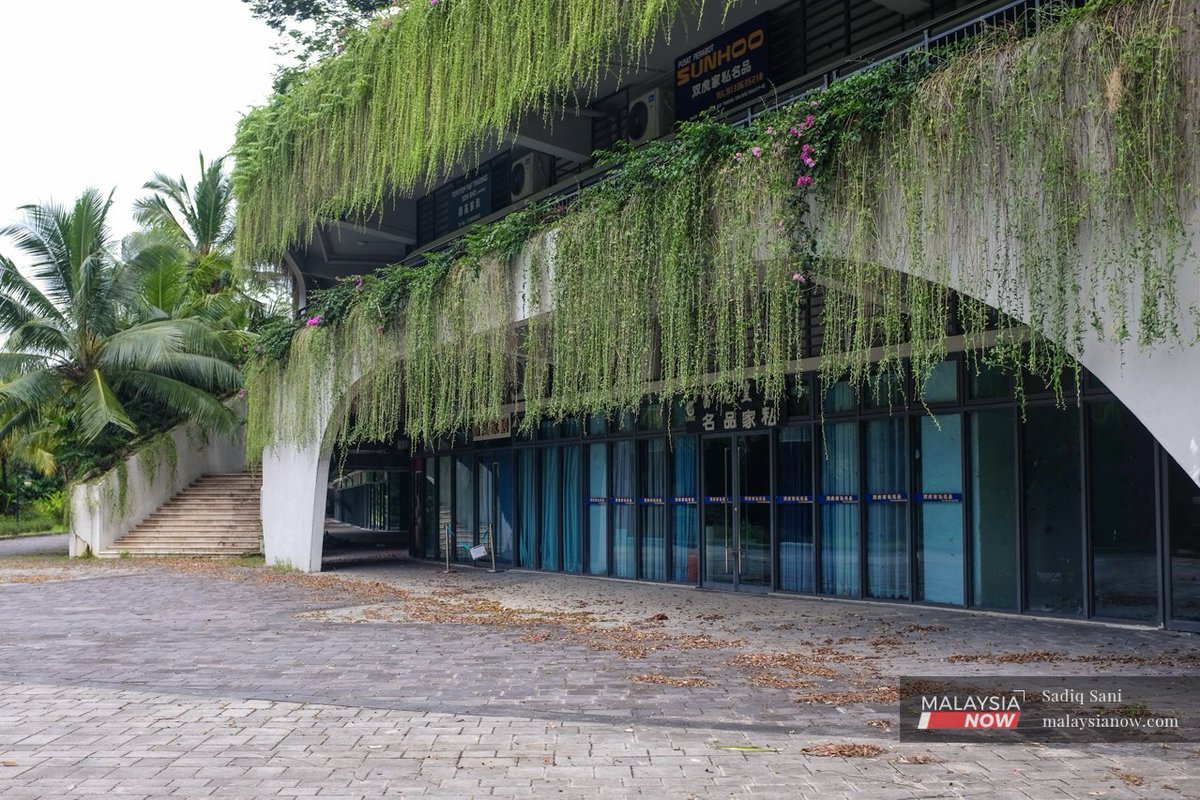
Related entries:
Entry #19 (Melaka Gateway) -
Entry #35 (Najib Razak) - https://t.co/jDFdH2nPIs
Entry #56 (East Coast Rail Link) - https://t.co/gYiU8JD6Ea
Entry #55 (Belt and Road Initiative) - https://t.co/wTjFYUHdcq
Entry #19 (Melaka Gateway) -
Entry #35 (Najib Razak) - https://t.co/jDFdH2nPIs
Entry #56 (East Coast Rail Link) - https://t.co/gYiU8JD6Ea
Entry #55 (Belt and Road Initiative) - https://t.co/wTjFYUHdcq
https://twitter.com/olliekarp/status/1634283475275599880?s=20
https://twitter.com/olliekarp/status/1641492891540533248?s=20
https://twitter.com/olliekarp/status/1652772506770759681?s=20
https://twitter.com/olliekarp/status/1652398339160440833?s=20
Similar entries:
Entry #49 (Dumaguete Reclamation Project) -
Entry #47 (Boying Remulla) - https://t.co/PK3pwQsZXi
For other entries, kindly visit this link: https://t.co/eTQ9EABZZX
bit.ly/thedailysoup
Entry #49 (Dumaguete Reclamation Project) -
Entry #47 (Boying Remulla) - https://t.co/PK3pwQsZXi
For other entries, kindly visit this link: https://t.co/eTQ9EABZZX
https://twitter.com/olliekarp/status/1648411457330249728?s=20
https://twitter.com/olliekarp/status/1647090959715545088?s=20
bit.ly/thedailysoup
@threadreaderapp unroll
• • •
Missing some Tweet in this thread? You can try to
force a refresh

































